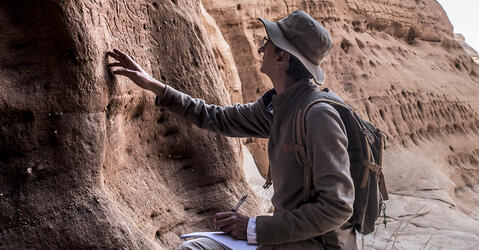You are here
Society
For the first time, researchers are assessing people’s opinions on policies for the global redistribution of wealth and the fight against climate change. Such measures receive massive, nearly universal support, albeit more so in Europe than in the United...
Article
02.13.2026
Manufactured primarily in England and France starting in the early 18th century, pianos were massively exported, in particular to the Americas, leading to the emergence of new repertoires. This is the amazing story of an instrument that has crossed oceans,...
Article
02.10.2026
In the Middle Ages, sugar was praised for its therapeutic benefits, whereas melon was long considered harmful! The mediaevalist and food specialist Bruno Laurioux recounts the history of the eternal quest for a healthful diet, from antiquity to the present...
Article
01.23.2026
Imagining and preparing for the future in order to guide research and public policy is the very purpose of foresight. A perilous exercise, scientists point out. And one that requires dialogue between disciplines, along with solid models accounting for...
Article
12.02.2025
See also
11.09.2025
In 2015, the historic Paris Agreement, signed by 195 countries, sought to limit global warming to 2 °C. Ten years later, the results have yet to materialise, raising questions regarding the...
Article
10.20.2025
The myth of Africa as a wild, enchanting continent conceals a reality of nature under glass orchestrated by Western experts, to the detriment of local populations. The historian Guillaume Blanc...
Article
10.15.2025
A previously unpublished sonnet by Cervantes, recently discovered in an account of Neapolitan festivals, reveals the exceptional socio-professional status of the author of "Don Quixote" in...
Article
10.03.2025
The concept of an “energy transition” is misleading, states the CNRS science historian Jean-Baptiste Fressoz. He explains why coal and oil never replaced wood, and that the fight against climate...
Article
09.29.2025
Oil isn't the only treasure hidden in the Arabian desert. French-Saudi archaeological teams are gradually unearthing a hitherto unsuspected heritage, including urban development, languages,...
Article
09.18.2025
Forty-four years after the earliest cases of AIDS were identified, the historian Marion Aballéa retraces the social, economic, cultural, scientific and public health history of the first pandemic...
07.24.2025
Steven Spielberg’s "Jaws" is back in cinemas worldwide 50 years after its original release. The specialist Éric Clua talks about the negative image of sharks conveyed by the film and a new...
07.22.2025
Digital cemeteries, deadbots… Is the development of digital tools changing the way we cope with death and mourning, as depicted in David Cronenberg’s latest film "The Shrouds"?
07.05.2025
Researchers have shown that dogs had a place in the first agricultural societies of Central and South America more than 5,000 years ago. But the arrival of European settlers brought about a drastic...











